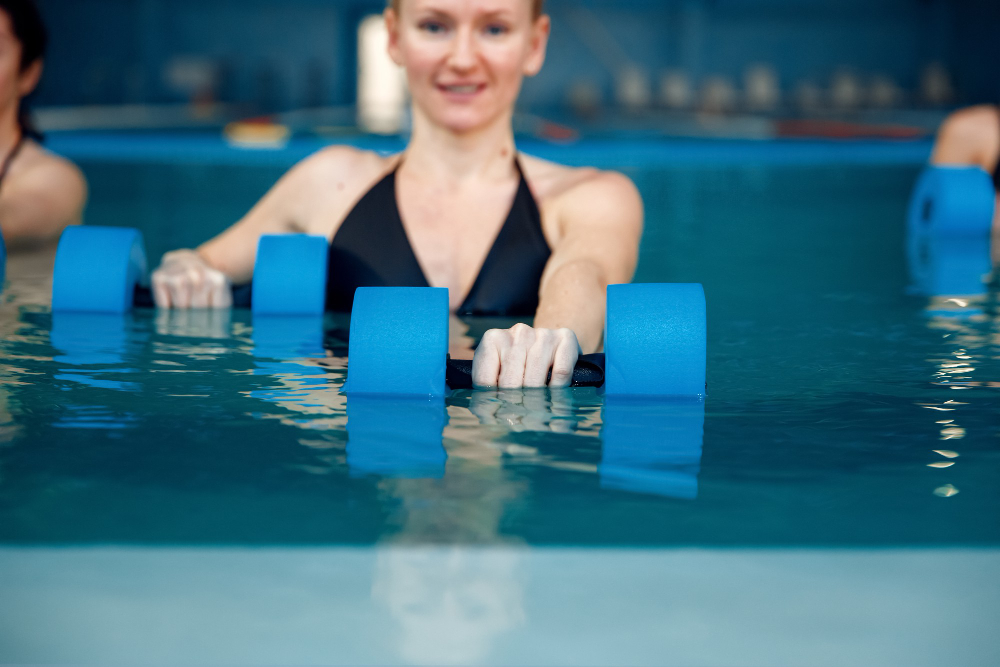Hydrotherapy is an age-old practice that uses water to promote health and well-being. From ancient Rome to modern spas, this therapy type has been used to relax muscles and soothe the body. Today, more people are discovering the benefits of hydrotherapy and incorporating it into their wellness routines. With its ability to improve mental and physical well-being, hydrotherapy is becoming a popular choice for people seeking natural healing methods.
Exploring the Science Behind Hydrotherapy
Hydrotherapy involves using water in various forms, such as cold, warm, or contrast water therapies, to support health. These methods can help the body in unique ways. Cold water can reduce inflammation, while warm water helps to relax and soothe muscles. Contrast therapy, which alternates between cold and warm water, can boost circulation and energy.
Water temperature and pressure are critical in creating reactions in the body. Warm water causes blood vessels to expand, improving blood flow. This can help relieve muscle tension and improve recovery from exercise. On the other hand, cold water can reduce swelling and numb painful areas, aiding in quicker recovery from injuries.
Evidence supports the benefits of hydrotherapy. Research shows it can relax tense muscles, improve blood circulation, and reduce stress levels. For many, a soothing bath or quick temperature change can act as a natural remedy to ease everyday discomforts. Thus, whether you’re stepping into a warm pool or switching from hot to cold water in the shower, hydrotherapy offers various options for enhancing well-being.
Comprehensive Benefits of Hydrotherapy for Mind and Body
Hydrotherapy offers many advantages that enhance both physical and mental health. Here’s how:
- Joint Pain Relief: Many find that warm water helps ease joint pain. The buoyancy of water reduces stress on joints, making it easier to move with less pain. Thus, activities like water aerobics can be beneficial for those with arthritis.
- Improved Flexibility: Exercising in water can help improve flexibility. The resistance of the water requires more effort, leading to better flexibility over time. This can be particularly beneficial for older adults who are looking to maintain their range of motion.
- Enhanced Circulation: Warm water can increase circulation, delivering more oxygen and nutrients to the body’s cells. This can aid in faster muscle recovery due to improved blood flow, which also helps in flushing out toxins.
- Mental Health Benefits: Hydrotherapy can significantly impact mental well-being. Immersing in water can prompt a state of deep relaxation, reducing stress and anxiety. Simple practices, like soaking in a warm bath, can help to calm the mind and improve one’s mood.
- Stress Relief and Relaxation: Stress can take a toll on mental health. Hydrotherapy techniques, such as warm baths or foot soaks, provide an easy way to unwind after a long day. These can be conveniently done at home with little expense.
For those looking for cost-effective ways to engage in hydrotherapy, consider these DIY methods:
- Baths: Fill your tub with warm water. You can add Epsom salts or essential oils for added relaxation. Soaking for 20 minutes can do wonders to alleviate stress and tension.
- Showers: Alternating between warm and cold water can invigorate your senses and enhance circulation.
- Compresses: Using a warm or cold compress is a simple way to target specific areas of discomfort, like sore shoulders or aching knees.
These affordable options ensure you can enjoy the benefits of hydrotherapy in the comfort of your home without breaking the bank.
Seamlessly Fitting Hydrotherapy into Your Urban Lifestyle
Despite the hustle of city life, you can easily incorporate hydrotherapy into your routine. Here’s how:
Start by integrating small, calming moments into your day. Use your bathroom as a sanctuary. A quick warm shower in the morning can invigorate you, while a relaxing bath in the evening can help your unwind.
You don’t need extensive spa facilities to benefit from hydrotherapy. Use your towel warmer to enjoy a warm cloth over your neck and shoulders. If you live a busy urban lifestyle, hydrotherapy near me searches can also guide you to local centers offering professional services.
Water-saving techniques can make your hydrotherapy practices more environmentally friendly. For instance, try using a timer to limit shower time or recycle bathwater for plants. Aim to be mindful of your water usage, even while indulging in this therapeutic method.
By being creative and resourceful, you can enjoy the rich rewards of hydrotherapy while also considering the environment. With these easy-to-implement suggestions, hydrotherapy in naturopathy can fit seamlessly into even the busiest of routines, bringing calmness and rejuvenation.

